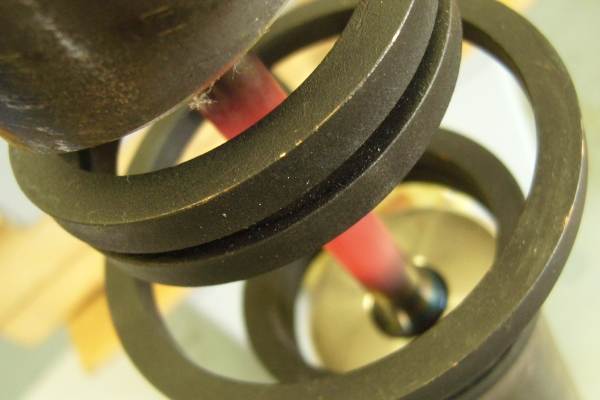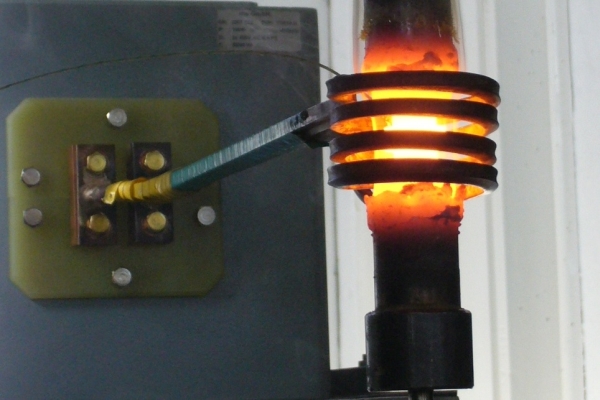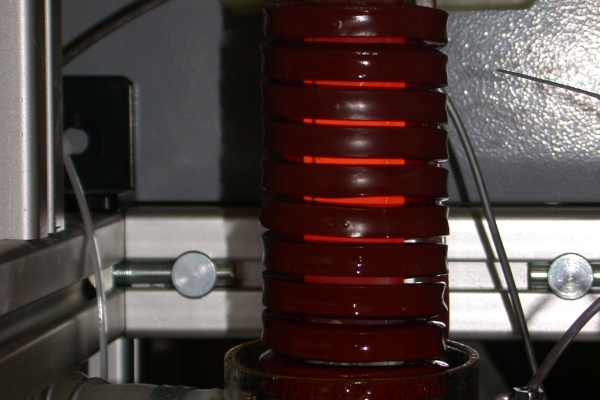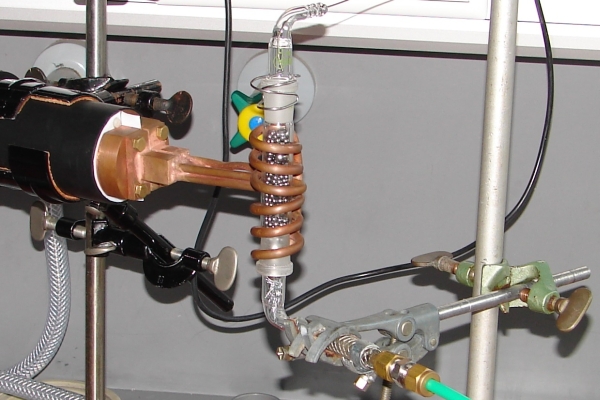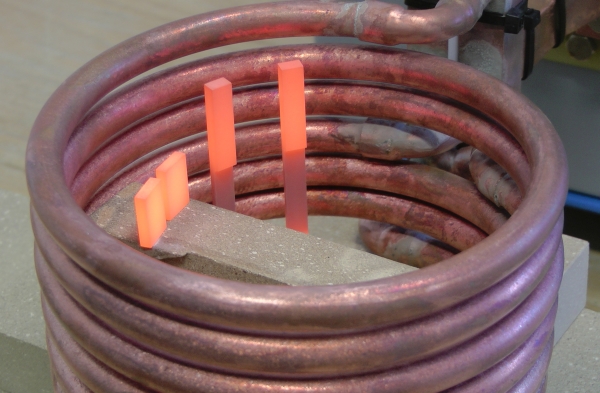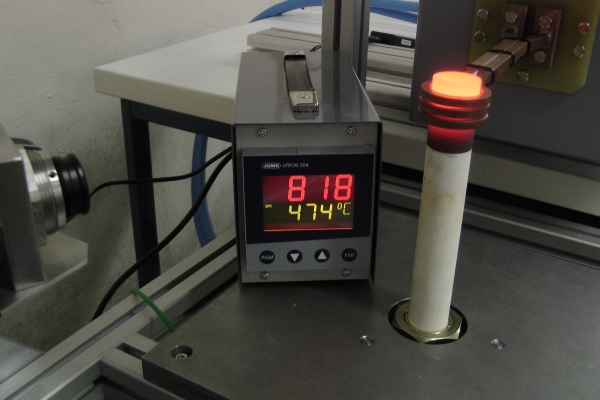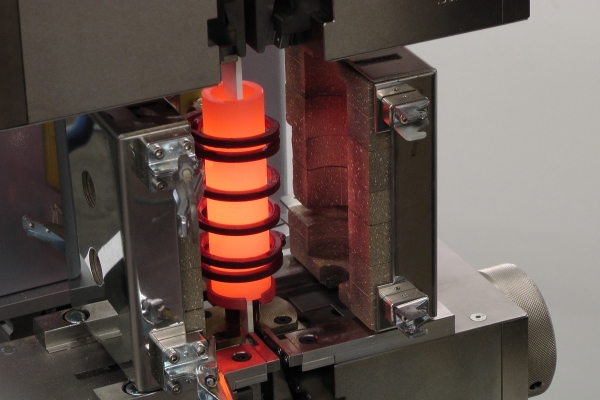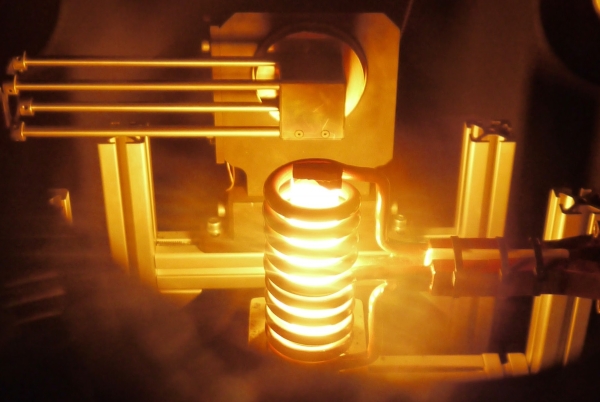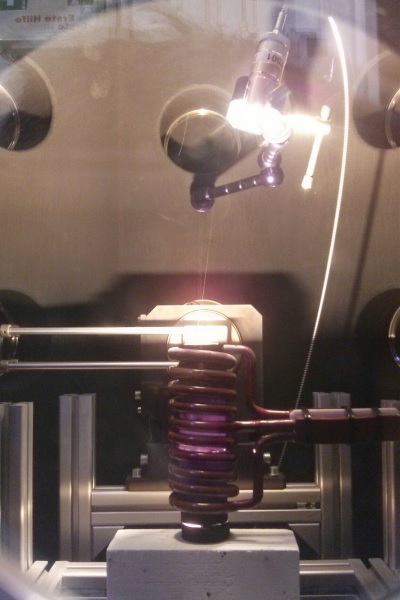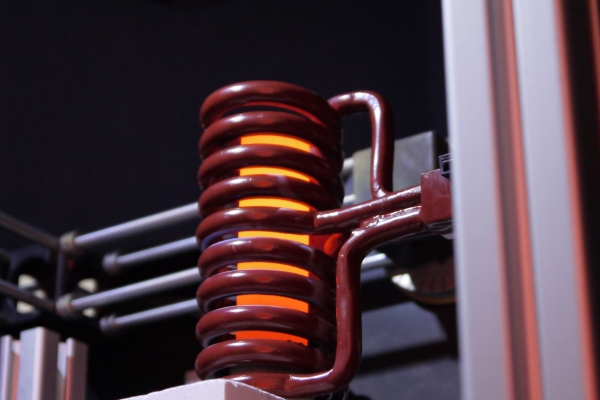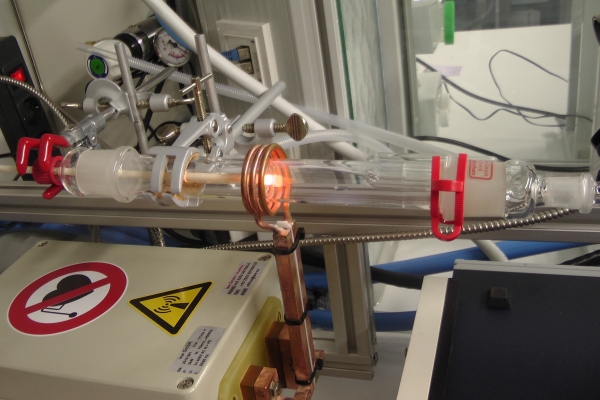Science and material testing
Science and material testing
Even in the science and material testing the inductive heating offers a large area of application. For example, metals for scientific experiments are heated and then subjected to mechanical loads. This is used, among other things, for the determination of shear and tensile strength, coefficient of expansion, etc.
When a high temperature gradient is desired, the induction heating is in most cases preferred in direct comparison to the heating in e.g. a furnace. This in turn ensures a rapid and reproducible heating (often robot-controlled) of the test specimens and thus steady process parameters as well as time and cost savings. Furthermore, long trial times have a negative effect on the metal-physical properties (precipitation, coarsening, recrystallization, creep) of the specimens. But it is also to be noted that the homogeneity of the inductive heating, compared to the heating furnace can never be 100% ensured.

